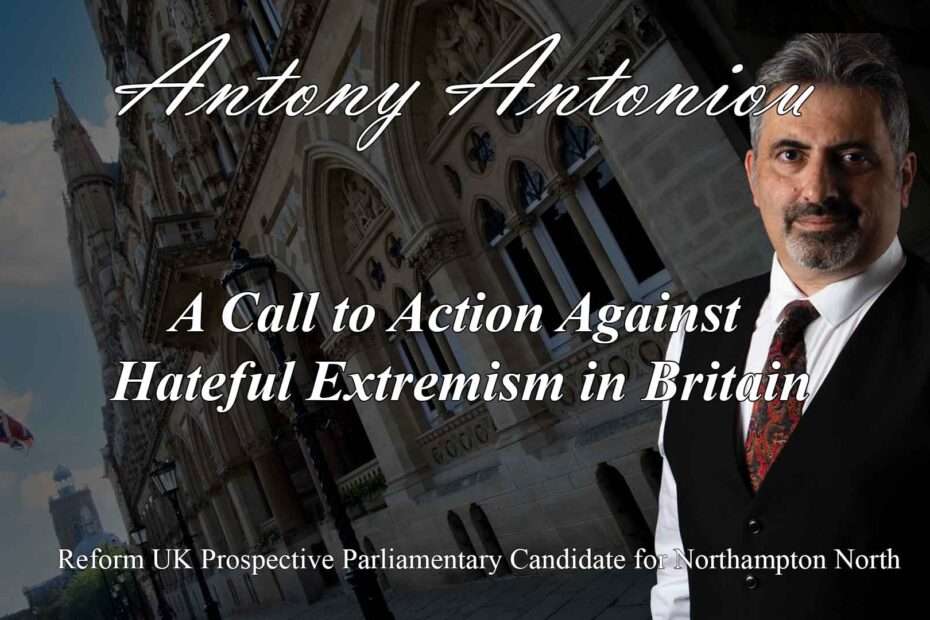A Call to Action Against Hateful Extremism in Britain
By the Commission for Countering Extremism
Lurking in the shadows of our society, the sinister force of hateful extremism threatens to tear apart the fabric of our democratic way of life. From inspiring terrorist atrocities to inciting persistent hatred, these extremist ideologues are having a devastating impact on victims and eroding the pluralistic values that define modern Britain.
Today, the independent Commission for Countering Extremism has issued a clarion call for robust action in a landmark report titled “Challenging Hateful Extremism.” Drawing upon an extensive 18-month national consultation that garnered nearly 3,000 responses from the public, victims, practitioners and academics, the Commission’s findings paint a harrowing picture of the rising tide of extremism in our communities.
At its core, the report proposes reframing our counter-extremism efforts around tackling “hateful extremism” – a set of corrosive behaviours and beliefs that actively target out-groups perceived as threats. Hateful extremism is summarised as conduct that can “incite and amplify hate, engage in persistent hatred, or equivocate about and make the moral case for violence” rooted in “hateful, hostile or supremacist beliefs” which causes tangible “harm to individuals, communities or wider society.”
The harms inflicted by hateful extremists are both pernicious and far-reaching. Victims have shared harrowing tales of abuse, harassment and violence levelled against them for simply expressing their beliefs or identity. Jewish MPs have been subjected to vitriolic antisemitic vitriol. Ahmadi Muslim children face taunts at school. Farmers have been targeted by animal rights activists. Even those striving to build bridges between communities have found themselves in the extremists’ crosshairs.
Moreover, the extremists’ toxic narratives are metastasizing online and infiltrating the mainstream. Far-right agitators promote racism cloaked in warnings about cultural threats. Islamists construct a bunker mentality centred on Muslims versus the corrupting West. The far-left conflates anti-imperialism with antisemitism. Their reach is staggering – some provocative social media posts garner over half a million views as thousands attend real-world rallies.
Prosecutions for stirring up hatred are at unprecedented levels, with all convictions last year involving anti-Muslim content. Religious hate crimes have surged over 200% faster than other forms since 2015. As the Lead Commissioner Sara Khan starkly warns, “We must not allow extremists to normalise their deep-seated hatred in our country.”
Recognising these grave threats, the Commission advocates for a bold new strategy centred on a “rights-based and proportionate response” to hateful extremism – one that robustly upholds civil liberties and democratic pluralism while firmly challenging those who undermine these values.
“Countering extremism is about standing up for our wonderfully diverse country – plural, tolerant, and broad-minded,” asserts Commissioner Khan. “It’s a positive vision for an inclusive society where we embrace each other’s differences and encourage people to find positive solutions together.”
Crucially, the report emphasises that this campaign against hateful extremism must be a “whole society” effort propelled by leaders across all sectors. The Commission is urging the Home Secretary to spearhead a specialised “hateful extremism task force” modelled on the government’s serious violence initiative. This cross-disciplinary group would coordinate the national response, oversee policy development, and rapidly address emerging situations.
Public bodies, too, must recognise victims of hateful extremism and provide adequate support services. Faith leaders must firmly denounce extremists perverting their traditions. Social media giants like Facebook and Twitter need innovative methods beyond content removal to promote healthier online discourse. Charities and rights groups should robustly fund and participate in counter-narrative programmes. As one respondent articulated, Britain needs “an inclusive society where individuals are encouraged to talk through positive solutions.”
Underpinning all these efforts, the Commission underscores the necessity of a statutory footing to escalate its work fighting hateful extremism. Enshrined in law with parliamentary accountability, an independent Commission could relentlessly advance new research, interventions and oversight to turn the tide against this menace.
Among its forthcoming priorities, the Commission will spearhead the development of a comprehensive working definition of hateful extremism by Spring 2020 to facilitate consistent identification.

